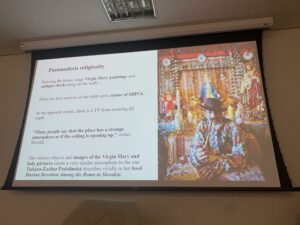Research of religiosity, spirituality and irreligiosity among the Roma in Slovakia
Grant Scheme: APVV
Project ID: APVV–22–0389
Title of Project: Research of religiosity, spirituality, and irreligiosity among the Roma in Slovakia
Acronym: RELIROMA
Project Duration: 1.7.2023 – 30.6.2027
Principal Investigator: Institute of Ethnology and Social Anthropology SAS
Project Partners: Constantine the Philosopher University in Nitra – Faculty of Social Sciences and Health Care, Comenius University Bratislava – Faculty of Natural Sciences
Project Leader: Mgr. Tatiana Zachar Podolinská, PhD.
Financial Manager IESA SAS: Mgr. Branislava Kolesárová
The main goal of the project is to investigate and document manifestations of church and non-church religiosity among the Roma in Slovakia, including manifestations of modern and postmodern spirituality and hitherto unexplored phenomena of religious experimenting, de-conversion, non-religiosity and secularism.
The project includes the analysis of existing quantitative surveys containing data on ethnicity, religiosity, and non-religion in Slovakia in dynamic perspective (EVS, ISSP, WVS, National censuses in the 21st century). Consecutive qualitative research will take place both at the individual micro-level (individual, family) and at the meso-level (institutions, etc.) within the local social field. In addition to the initial mapping of the activities of traditional churches and new religious movements among the Roma in Slovakia, the project will focus on ethnographic research among believing Roma (conversion narratives) and religious leaders in selected localities. Via collecting the life trajectories and stories, it will also approach the paths of non-practicing believers, de-converts, spiritual seekers, religiously indifferent and secular Roma.
As a control sample, the local non-Roma population will be selectively mapped using the same methods.
A combination of mixed-method design and multi-level and multi-sited ethnographies will enable us to place received profiles in a broader context. The specific goal of the project is to document religious-spiritual and ritual objects and compositions in Roma communities within the local piety (chapels, crosses, domestic altars, religious images and frescoes, domestic devotionals, etc.) by the method of documentary and artistic photography.
One of the main outputs of the project will be the first Web portal of Roma religious and spiritual art in Slovakia. The project will also deliver the traveling exhibition and corresponding lectures for public in regions.
Information about the project and its outputs
The panel Veneration of the Virgin Mary among the Roma – Global Challenges and Local Diversities was organized at the World Anthropological Union Congress: Unearthing humanity. Critical and Urgent Epistemic Redefinitions in World Anthropologies, held from November 3 to 8, 2025, in Antigua, Guatemala.
The World Anthropological Union Congress’s notably diverse programme included approximately 170 academic and practical sessions, book presentations, masterclasses, laboratories, and screenings of visual anthropological films. More than 1,000 specialists, selected from over 5,000 proposals, participated, representing fields such as ethnography, ethnology, anthropology, history, sociology, cultural studies, and related disciplines. Leading research centres from around the world, including those in Russia, China, the United States, the United Kingdom, France, Germany, the Netherlands, Italy, Spain, India, the Philippines, Australia, Canada, Argentina, Chile, South Africa, and many others, were among the participating institutions.
Within the framework of the congress, Tatiana Zachar Podolinská and Elena Marushiakova organised the panel “Veneration of the Virgin Mary among the Roma – Global Challenges and Local Diversities.” The panel explored manifestations of both church-based and non-institutional religiosity among the Roma (formerly known as “Gypsies”) through the example of the cult of the Virgin Mary. Special emphasis was placed on contemporary and post-modern spiritualities, previously unexplored phenomena of religious experimentation, conversion and de-conversion, and the widespread syncretism typical of Roma religiosity (for more see: https://www.waucongress2025.org/panel/?id=347).
The panel aimed to reassess the role of Marian devotion in Roma communities as a means of social, cultural, and ethnic innovation; its significance in shaping and reshaping identity; its impact on social inclusion and exclusion, social mobility, and migration; and its functions in promoting social cohesion, networking, and non-traditional religious expressions. Marian devotion—including pilgrimages and apparitions—is not a static relic of the past. Instead, it serves as a powerful expression of post-modern religiosity, highlighting key aspects of both spirituality and popular religion. Driven by “living faith,” emotions, and miracles, it reflects not only a response to modern rationality and secularisation but also acts as a vehicle for the rise of spontaneous, grassroots Christianity, contrasting with the “normative religion” represented by official Catholic, Orthodox, Evangelical, and Islamic traditions.
Rooted in the analysis of local social fields, the panel examined how Roma communities worldwide respond to contemporary global challenges such as migration, mobility, social stratification, and geopolitical pressures. It contextualised the religiosity practised by Roma in the early twenty-first century within the broader framework of post-modern religious dynamics. The individual papers illustrated these processes through case studies from Roma communities in different parts of the world.
Tatiana Zachar Podolinská (Institute of Ethnology and Social Anthropology, SAS) presented her extensive qualitative research on “Marian Devotion Among the Roma in Slovakia: Ethnicised and Enculturated Mary”. The paper explores how Marian devotion is ingrained in the unspoken system of rules and values within Roma communities in Slovakia, tracing the “appropriation” of the Virgin Mary in traditional Romani Catholicism. It emphasises the ethnicisation and enculturation through which the “White” Virgin Mary is culturally adapted to meet the needs and aspirations of marginalised communities. A key part of the presentation examined the roles that the Virgin Mary plays in contemporary Romani Christianity, along with rituals and practices associated with her. The paper concludes by discussing the figure of the “Chocolate Mary”—an ethnicised and enculturated Romani Virgin Mary—and her potential to serve as a post-modern religious response to the marginalisation of Roma people. It also addresses interactions between traditional Mary-centred religiosity in rural Roma communities and the emerging Neo-Protestant and Pentecostal movements in post-communist Slovakia, which promote an anti-Marian discourse. The contribution is output of the project APVV–22–0389 (RELIROMA), “Research of Religiosity, Spirituality, and Irreligiosity Among the Roma in Slovakia”.
Elena Marushiakova and Veselin Popov (Institute of Ethnology and Social Anthropology, SAS) discussed their extensive research on the pilgrimage to the Dormition of the Theotokos (Mother of God) Monastery in Bachkovo of diverse Roma groups.
Elena Marushiakova presented a paper titled “The pilgrimage to the Dormition of the Mother of God Monastery in Bachkovo: Roma Orthodox Christians”
Veselin Popov’s presentation explored “The pilgrimage of the Muslim Roma to the Orthodox Monastery Dormition of the Mother of God in Bachkovo”.
Both presentations are based on materials and observations gathered over the past 30 years. Their presentations examined changes in the form and significance of the pilgrimage across three distinct historical periods and concluded with an analysis of its most recent developments and underlying causes.
Kinga and István Povedák (University of Szeged and Moholy-Nagy University of Art and Design, Budapest) shared their findings from long-term fieldwork among Roma in Hungary, concentrating on the pilgrimage to a well-known site in Csatka.
Kinga Povedák’s paper, “Reconfiguring Marian Devotion: The Transformation of Marian Cult among Evangelical Roma Communities in Hungary,” examined how various evangelical missions—particularly Pentecostal charismatic churches—have attracted increasing numbers of Roma converts in recent decades. Drawing on ethnographic research, she analysed emerging narratives surrounding the abandonment of Marian devotion, exploring the perspectives of pastors, community leaders, and families, as well as new creative religious expressions arising from this shift. The presentation offered insights into how grassroots Pentecostal movements reinterpret sacred traditions and reshape devotional practices amid broader societal transformations.
István Povedák’s presentation, “Personal Visions, Pilgrimage, and Religious Identity: The Veneration of the Virgin Mary Among Hungarian Catholic Roma,” centred on the case of “Kalapos Zoli,” a well-known Hungarian Roma religious specialist. By analysing Zoli’s personal visions, Marian apparitions, household chapel, and his participation in the pilgrimage to Csatka, the paper highlighted ethnic specificities of Marian devotion among Roma—an aspect often intertwined with stereotypes. It also raised the broader question of whether differences in Marian devotion between Roma and gadje (non-Roma) could promote Roma inclusion or, conversely, deepen local religious tensions.
Serving as discussant, Sofiya Zahova (University of Iceland) demonstrated exceptional expertise in the field of Roma religion. Her questions and comments sparked an extended discussion that exceeded the allotted time for the panel. As a result of the panel’s rich debates and high-quality contributions, participants agreed to compile a collective monograph based on the presented papers.
Panel is the output of the project APVV–22–0389 (RELIROMA), “Research of Religiosity, Spirituality, and Irreligiosity Among the Roma in Slovakia” and of research grant eHISTORY OF ROMA EMANCIPATION, 09I01-03-V08-00001 funded by the EU NextGenerationEU through the Recovery and Resilience Plan for Slovakia.
Picture 1: Panel presentations
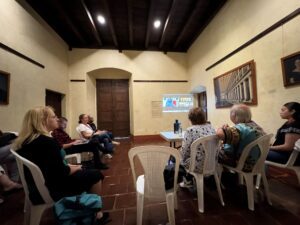
Picture 2: Panel participants
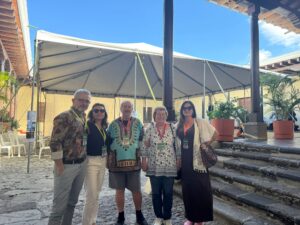
From October 22 to 24, 2025, the research team of the Reliroma project gathered for a working meeting in Oponice. The key focus of the two-day intensive program was preparing a proposal for an edited book, which will be one of the main outputs of the scientific project concluding in 2027.
We also welcomed a new member to our research team, Dr. Katarína Vanková from Constantine the Philosopher University in Nitra. Together with our new colleague, we continued coding field material and addressed matters related to the end of the fiscal year and changes within the research team.
Photo 1: Part of the RELIROMA research team during the off-site session in Oponice (© Tatiana Zachar Podolinská)
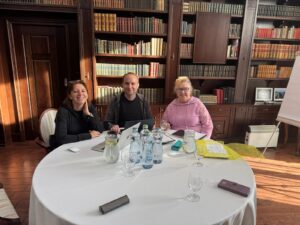
Photo 2: Online discussion with the financial manager of our institute (© Juraj Majo)
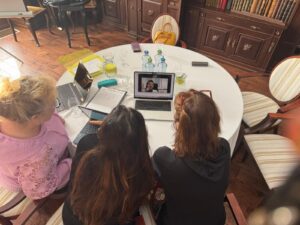
The annual Gypsy Lore Society conference was opened on Wednesday, September 24, by its president, Dr. Tatiana Zachar Podolinská, who focused her speech on aspects of Romani studies in relation to artificial intelligence, as well as the issue of digital deprivation often faced by Roma communities.
In her speech, Dr. Zachar Podolinská emphasized the urgent need to address how artificial intelligence impacts Roma communities, particularly through algorithmic bias and digital exclusion.
She called for Romani studies to critically engage with AI not only as a threat but also as a tool for empowerment, cultural preservation, and participatory research. The speech concluded with a rallying vision for Roma voices to shape the digital future through ethical, inclusive, and community-driven approaches.
The whole speech is available HERE.
Photo 1. T. Zachar Podolinska during opening speech (© J. Majo)
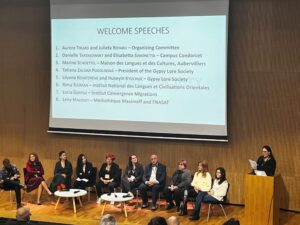
The 47th annual conference of the Gypsy Lore Society took place from September 24–26 at Campus Condorcet in the Aubervilliers district of Paris. The event welcomed numerous participants from around the world and was organized in collaboration with the Institut des Langues et Civilisations Orientales (INALCO), the Institut Convergences Migrations (ICM), the French National Centre for Scientific Research (CNRS), and FNASAT Gens du Voyage – Médiathèque “Matéo Maximoff,” all based in Paris. IESA SAS co-published the book of abstracts.
In the conference sessions, our institute was represented by Dr. Daniel Škobla and Dr. R. Filčák with their joint presentation Roma poverty and marginalization amid the decline of mining towns in eastern Slovakia. In a dedicated panel titled Religiosity, Spirituality and Non-religiosity among the Roma, Dr. Juraj Majo and Dr. Tatiana Zachar Podolinská presented Some Current Aspects of Romani Religiosity, Spirituality, and Non-Religiosity in Slovakia – First Results from the RELIROMA Project, and Dr. Podolinská also delivered a talk on Anti-Maryism and Pentecostal Peripheralisation of Virgin Mary among the Roma in Slovakia (findings from the RELIROMA project).
The strong attendance once again confirmed that Romani studies continue to offer a wealth of relevant and pressing topics that attract scholars from across the globe. We look forward to new experiences, insights, and approaches at the next Gypsy Lore Society annual conference, which will be held in Zagreb, Croatia, in 2026.
Photo 1: Opening ceremony of the Gypsy Lore Society Annual Conference (© J. Majo)
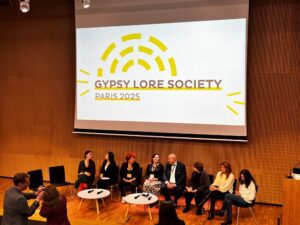
Photo 2: Religiosity, Spirituality and Non-religiosity among the Roma panel participants (© T. Zachar Podolinská)
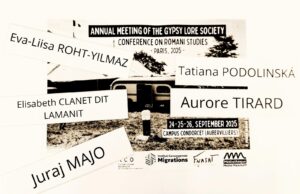
Photo 3: J. Majo during presentation (© T. Zachar Podolinská)
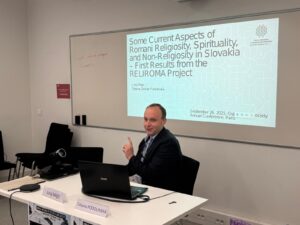
Photo 4: T. Zachar Podolinská during presentation (© J. Majo)
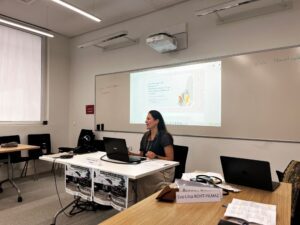
On the evening of September 19th, the second participatory workshop for volunteers working in marginalized communities took place at the Old Lyceum on Konventná Street. Once again, it was led by Tatiana Zachar Podolinská. This event represents another dimension of a highly beneficial collaboration that emerged from the APVV – Reliroma project and the Bratislava Old Town Lutheran (ECAV) congregation, headed by Pastor Anna Polcková.
Thanks to her initiative, active work within marginalized Roma communities has been ongoing for some time. In this context, the need arose for professional training for volunteers, as well as for finding solutions and exploring various aspects of the specific challenges they encounter in their work.
This collaboration has also resulted in the signing of a memorandum of cooperation between the Institute of Ethnology and Social Anthropology of the Slovak Academy of Sciences and the Bratislava Old Town Lutheran congregation. This opens up a platform for further cooperation on topics that intersect with the scientific profile of the institute and the activities of the church congregation.
Photo 1: T. Zachar Podolinská during the workshop (© Anna Polcková)
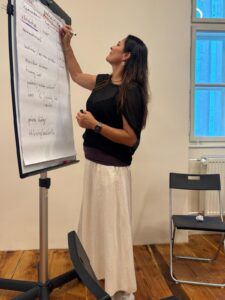
Photo 2: Workshop participants at the Old Lyceum (© Anna Polcková)
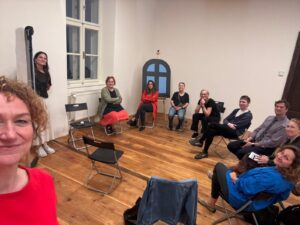
From September 8–10, a thematically unique and highly engaging conference of the Nonreligion and Secularity Research Group took place at Comenius University and its Faculty of Natural Sciences.
The Slovak organizer, Dr. Juraj Majo, welcomed the participants, and the conference was officially opened by the network’s president, Atko Remmel from the University of Tartu in Estonia. Opening speeches were also delivered by representatives of the co-organizing institutions—Dr. Tatiana Zachar Podolinská from the Institute of Ethnology and Social Anthropology of the Slovak Academy of Sciences, and Associate Professor Radomír Masaryk, Vice-Rector for External Relations at Comenius University in Bratislava. This excellent collaboration between two leading Slovak institutions, both in organizing the event and conducting research, highlights the importance and relevance of such emerging topics.
The conference featured a rich thematic program with compelling presentations. The first session was quite unconventional—covering topics such as rituals, mysticism, and death in post-religious societies; the relationship between nonreligion and the environment; aspects of education and intergenerational transmission of nonreligion; and various geographic, cultural, and ethnic dimensions of secularization and nonreligion.
The highlight of the program was the keynote lecture by Dr. Eva Guigo-Patzelt from Paris, who, in the context of the conference’s location, explored the historical development of scientific atheism in the former East Germany. The event also included a discussion with authors Roberta Ricucci, Christel Gärtner, and Gergely Rosta about their monograph Families and Religion: Dynamics of Transmission across Generations, joined by researchers S. Wilkins-Laflamme and L. Beaman from Canada and the USA, who reviewed the book for the occasion.
From our institute, contributions were presented by PhD candidate Iveta Štefanovičová on Elements of Nonreligion Online “Culture”: A Comparison Between the USA and Slovakia, and by Juraj Majo and Tatiana Zachar Podolinská on Nonreligion among Roma – Different Perceptions, Different Contexts.
An equally important aspect of the conference was its informal part, which fostered future networking, idea sharing, and dialogue—through a reception and a group dinner at a restaurant on the Danube.
Final Reflections: The Nonreligion and Secularity Research Network conference is informal, open, and free of registration fees, aiming to create a platform for scientific exchange regardless of academic experience or financial means. It maintains a small, almost familial atmosphere while attracting a diverse group of participants. Out of 38 registered attendees, 27 came to Bratislava, representing Slovakia (5 researchers), as well as Hungary, Germany, Poland, Belgium, Norway, the USA, Canada, Brazil, Spain, Australia, and Austria.
Text prepared by Juraj Majo.
Photo 1: Conference (J. Majo)
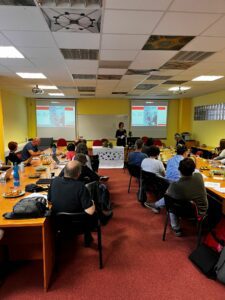
Photo 2: Presentation (J. Majo)
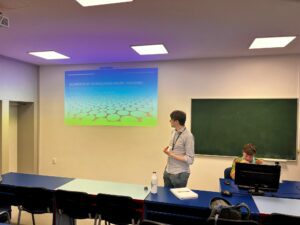
Photo 4: Conferencie presentation (J. Majo)
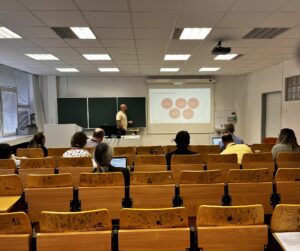
Photo 5: Conference presentation (J. Majo)
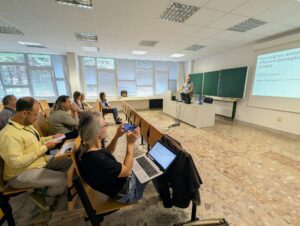
Photo 6: Conference participants (J. Majo)
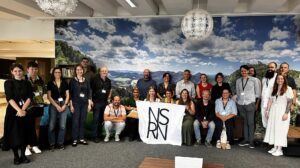
From September 8 to 10, 2025, the Faculty of Natural Sciences at Comenius University will host the conference of the Nonreligion and Secularity Research Network. The Institute of Ethnology and Social Anthropology of the Slovak Academy of Sciences is co-organizing the event (as part of the APVV RELIROMA project).
Presenters from our institute will include director Tatiana Zachar Podolinská, who will also officially open the conference alongside Comenius University Vice-Rector Radomír Masaryk, as well as PhD candidate Iveta Štefanovičová and Juraj Majo. Together with Atko Remmel, president of the network from the University of Tartu in Estonia, they are among the main organizers.
This conference marks a unique milestone: since the network’s founding in 2008, it will be held for the first time in a post-socialist country, where the themes of nonreligion and secularism carry a distinct cultural context. A total of 37 participants have registered, with 28 attending in person. Most attendees come from Western European countries, the USA, and Canada.The plenary lecture will take place on Tuesday morning, delivered by Dr. Eva Guigo – Patzelt from the École des Hautes Études en Sciences Sociales in Paris. Her talk is titled Between godlessness and indifference: Nonreligion in Central and Eastern Europe, past and present.
More details about individual presentations and the schedule can be found in the abstract book HERE.
It’s said that some invitations are better not refused. One such rare invitation came on July 11–13, 2025, when Juraj Majo and Alena Rochovská attended the regional annual convention of Jehovah’s Witnesses in Košice titled Oslavujme Boha správne/ Tiszta imádat / Ašaras le Jehovas avka sar kamel (Let Us Worship God Properly). As the event’s title suggests, it was open to the three largest language groups in this community—Slovaks, Roma, and Hungarians—totalling around 7,000 believers.
Especially noteworthy is the work of Jehovah’s Witnesses among the Roma, which was the main reason for the visit by our colleagues. The event took place in a football stadium and had a festive atmosphere, highlighted by the attire of all participants and a rich program that included screenings of religious films, songs, lectures, and meetings of the believers. One of the highlights of the event was the presentation of the translation of the Christian Greek Scriptures (New Testament) into Eastern Slovak Romani, as well as the baptism of several dozen new members of the community.
Photo 1: Poster about the event in the Romani language (J. Majo)
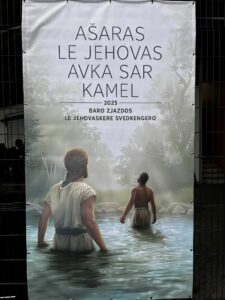
Photo 2: View of the Slovak-speaking part of the audience (J. Majo)

Photo 3: View of the Romani-speaking part of the audience (J. Majo)
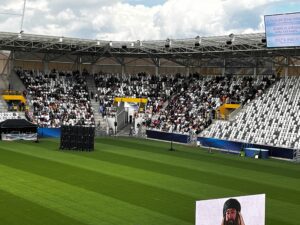
Photo 4: Baptism of new community members (J. Majo)
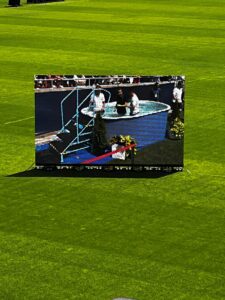
From May 15 to 18, 2025, a field work meeting of the Reliroma project team took place at Hotel Flóra in Trenčianske Teplice. During the working retreat, we focused on developing fieldwork activities, coding field records, and preparing thematic areas and their content for the upcoming final monograph.
Picture 1: Project team during the meeting (© Tatiana Zachar Podolinská)

Picture 2: Project team during the meeting (© Tatiana Zachar Podolinská)
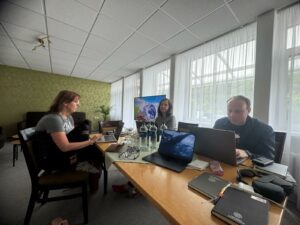
On March 7, 2025, another work meeting took place in a hybrid format, focusing primarily on finalizing the archiving of field materials and creating final field reports. At the same time, we welcomed a new team member, Dr. Katarína Vanková from Constantine the Philosopher University in Nitra, who replaced Assoc. Prof. Jurina Rusnáková. Dr. Vanková, like the other project members from Nitra University, is also affiliated with the Institute of Romani Studies.
On February 14, a hybrid meeting of the RELIROMA project team took place at IESA SAS. This intensive meeting focused on completing the coding and archiving process of the 2024 field material.
Through joint discussion and collaboration, the team worked on unifying and streamlining the entire process, including coding, anonymization, sorting, and storing extensive field materials (such as photographs, transcripts, audio, and video recordings).
Finalizing tasks continued online on Monday, February 17, and the team agreed to complete this process by the end of February, with the finalization of field reports planned for the spring of 2025.
Picture: Project team meeting (© Branislava Kolesárová)
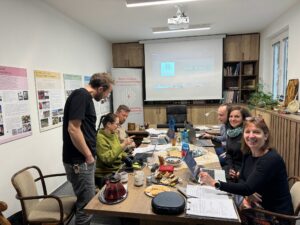
On 3 February 2025, Juraj Majo and Barbara Lášticová from the Institute for Research in Social Communication, Slovak Academy of Sciences (ÚVSK SAV, v. v. i.), delivered a lecture at a specialised seminar hosted by the same institute. Their presentation, entitled “First Scientific Experience with Second Ethnicity Declaration”, focused on the initial scientific insights gained from the collection of second ethnicity data in the 2021 Population Census in Slovakia.
The lecture was interdisciplinary in nature, integrating knowledge from demography, social geography, and psychology. The introduction of second ethnicity declaration for the first time in Slovakia’s census provided valuable insights into the internal structure of ethnic groups, with this issue proving to be particularly significant in the context of the Roma population.
You can download the presentation in PDF format HERE.
Photo: Scientific presentation (@B. Lášticová).
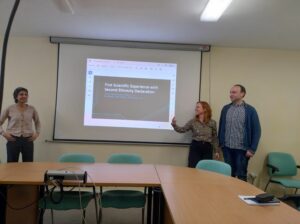
Based on previous projects and experiences from the COST Action CA20107 Connecting Theory and Practical Issues of Migration and Religious Diversity (COREnet) and the APVV RELIROMA project Research on Religiosity, Spirituality, and Non-Religiosity among Roma in Slovakia, 14 experts from around the world, including T. Zachar Podolinská from the Institute of Ethnology and Social Anthropology of the Slovak Academy of Sciences, v. v. i., have submitted a COST Innovators Grant (CIG) application titled Negotiating Religious Diversity and Migration in Practice Locally and Globally (RELMIG).
RELMIG is a train-the-trainer program focused on addressing migration and religious diversity in Europe through education, collaboration, and local-level dialogue. By utilizing a flexible, research-based tool, it supports key stakeholders—migrants, religious leaders, policymakers, and civil society—in developing sustainable solutions and preventing social polarization. The program bridges local and European perspectives, emphasizing participatory approaches and practice-based research. To ensure its relevance and impact, testing phases will be conducted in various European communities and events.
On January 28, 2025, our long-time collaborator from the University of Szeged, Dr. habil. Kinga Povedák, delivered a lecture as part of the institute’s professional seminars. In her presentation, “Sonic Healing in Christian Roma Communities,” she explored how believers negotiate their religious and ethnic identities through various sonic strategies, drawing on ethnographic research among Hungarian-speaking Christian Roma communities in the Gemer region.
By examining a wide range of musical practices—from those that consciously minimize ethnic markers to original Roma compositions emerging at the grassroots level—she revealed how Roma participants simultaneously challenge and reimagine social boundaries. This collective creativity functions as a form of sonic healing, addressing wounded collective identities and fostering social recognition.
Picture 1: Seminar presentation (© T. Zachar Podolinská)
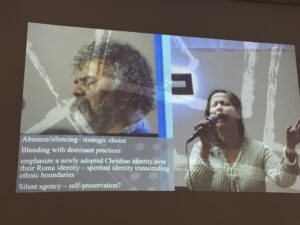
Picture 2: Seminar presentation (© T. Zachar Podolinská)
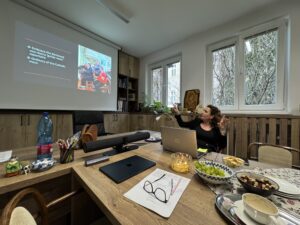
Picture 3: Seminar presentation (© T. Zachar Podolinská)
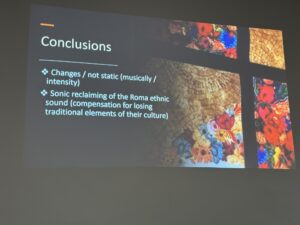
On November 26, 2024, we welcomed Assoc. Prof. Magdalena Slavkova from the Institute of Ethnography and Folklore Studies at the Bulgarian Academy of Sciences to our institute. As part of our expert seminar series, she delivered a lecture titled “Why only Jesus Christ can save us? Religious experience and belonging of the Evangelical Roma in the perspectives of Bulgarian and Slovakian Romani Studies.” The findings presented by Magdalena Slavkova are also one of the outcomes of her study stay at our institute this year, based on the intergovernmental agreement between the Slovak Republic and Bulgaria.
Picture 1: M. Slavkova´s lecture (©Juraj Majo)
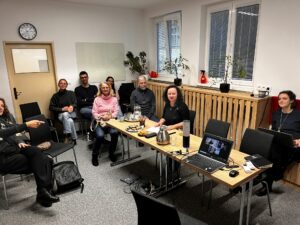
Picture 2: M. Slavkova´s lecture (©Juraj Majo)
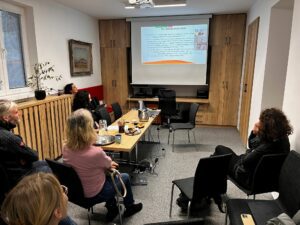
From November 21 to 24, the RELIROMA project team held its first off-site meeting of the year at Chateau Krakovany. The agenda included evaluating the field research conducted so far in various locations across Slovakia, discussing and unifying the coding process of the collected field materials, and outlining additional field research sites for 2025.
Picture 1: RELIROMA project team meeting (©Tatiana Zachar Podolinská)
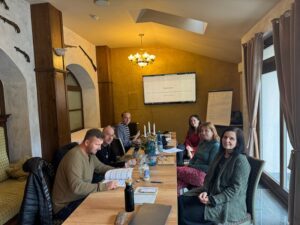
Picture 2: Evaluation of the field research localities (©Tatiana Zachar Podolinská)
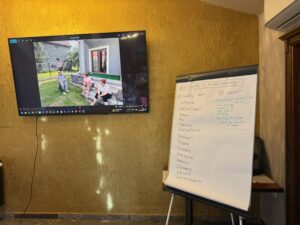
From November 13 to 15, the traditional and well-established event, the Academy of Romani Studies, took place in Prague. The 9th edition was organized by our Institute of Ethnology and Social Anthropology of the Slovak Academy of Sciences (SAV, v.v.i) in cooperation with the Department of Romani Studies at the Faculty of Arts of Charles University in Prague. Supported by the projects POINT: Support for Internationalization at Charles University and APPV-22-0389 Research of Religiosity, Spirituality, and Non-Religiosity among Roma in Slovakia, the conference once again hosted researchers focused on Romani issues in the Czech Republic and Slovakia.
The event was opened by Helena Sedílková from Charles University in Prague and Tomáš Hrustič from UESA SAV. As part of the academy, presentations from our institute included contributions by Juraj Majo: Religiosity, Spirituality, and Non-Religiosity among Roma in Slovakia — the Reliroma Project (research design and initial findings). Tomáš Hrustič participated as a discussant in Lukáš L. Červinka’s presentation on the topic Exclusion of Roma from the Czech Political Community.
Pictures:
Picture 1: T. Hrustič and M. Sedílková during the academy’s opening (©J. Majo)
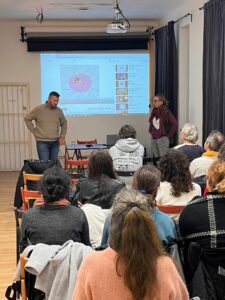
Picture 2: J. Majo during his presentation (©D. Škobla)
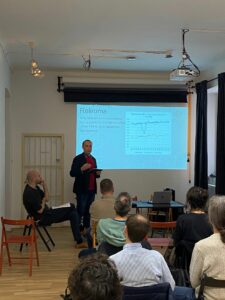
Picture 3: T. Hrustič as a discussant with L. L. Červinka (©J. Majo)
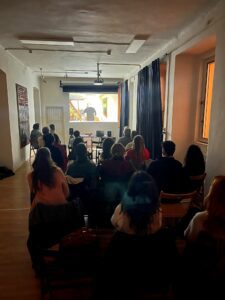
On October 24, an online meeting of the Reliroma project team took place. Following the initial period of field data collection, we discussed aspects of coding and making field materials accessible with the head of the Institute’s documentation department, Dr. Andrej Gogora. These materials will be stored in the archive of the Institute of Ethnology and Social Anthropology. Given the scope and nature of the materials collected, it is necessary to introduce a special coding system, distinct from inventory numbers, to enable individual materials to be identified and interlinked (e.g., based on family connections). The project team also discussed other important aspects of processing the field materials – such as addressing the handling of confidential information in interviews beyond the level covered by informed consent signed by respondents, as well as options for transferring and storing collected materials on the Institute’s cloud. Further work with the field material, including coding and creating annotations, will be the focus of an on-site meeting in Krakovany at the end of November.
Picture 1: Screenshot from the working meeting, October 24, 2024
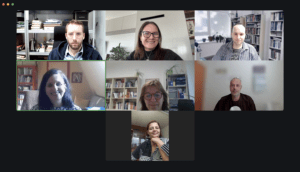
Picture 2: Screenshot from the working meeting, October 24, 2024
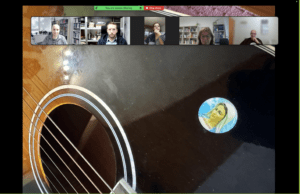
As part of the RELIROMA project, Juraj Majo, in co-authorship with Barbara Lášticová from the Institute for Research in Social Communication of the Slovak Academy of Sciences, v. v. i., published a scientific study in the journal Sociológia – Slovak Sociological Review in October 2024. The publication is in Open Access format.
Majo, J., Lášticová, B. (2024). Deklarovanie druhej národnosti v sčítaní z roku 2021 na Slovensku: nové skúsenosti, nové vedecké výzvy. Sociológia – Slovak Sociological Review, 56(5), 450-480. DOI: https://doi.org/10.31577/sociologia.2024.56.5.17
Part of the program of the annual Gypsy Lore Society conference in Sofia, Bulgaria, in September 2024 was a panel created within the RELIROMA project, organized by T. Zachar Podolinská and Magdalena Slavkova from the Bulgarian Academy of Sciences. The panel featured contributions from Tatiana Zachar Podolinská, who presented Unveiling the Unexplored Faces of Religiosity, Spirituality, and Non-religiosity among the Roma in Slovakia; Tomáš Hrustič, who discussed Religion as a Driving Factor of Increased Political Participation of Roma in Slovakia; Juraj Majo, who shared insights on Family and Faith in the Romani Community in Slovakia. A Few Remarks from the 2021 Census; and Magdalena Slavkova, who presented on Social Inclusion and Belonging to the Global Community of God’s Chosen People of Evangelical Roma in Bulgaria and Slovakia, a topic she developed during her 2023 residency at the Institute of Ethnology and Social Anthropology.
- Book of Abstracts from the conference is available HERE.
- The opening speech of the president of GLS, Tatiana Zachar Podolinská, is available in electronic version HERE.
- The scientific paper by T. Zachar Podolinská in the RELIROMA panel is available in electronic version HERE.
- The scientific paper by J. Majo in the RELIROMA panel is available in electronic version HERE.
- The scientific paper by M. Slavkova in the RELIROMA panel is available in electronic version HERE.
Read more about the conference HERE.
On June 6, 2024, the research team of the RELIROMA project held a coordination seminar focused on archiving field records. Andrej Gogora, the head of the Scientific Collections and Information-Documentation Department at the Institute of Ethnology and Social Anthropology of the Slovak Academy of Sciences, presented various aspects and challenges of archiving field records. The research team was introduced to methods of digital preservation of field data, including aspects of data coding and storage. The team also coordinated the plan for field research and data collection for the year ahead.
Photo: RELIROMA project team (Branislava Kolesárová)
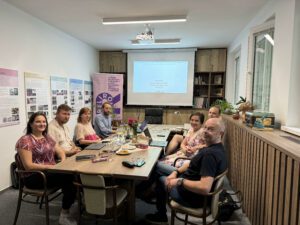
Tatiana Zachar Podolinská and Juraj Majo participated in the international ISORECEA conference in April 2024, focusing on the theme Religious Diversity and Social Cohesion in Central and Eastern Europe and Beyond. Both colleagues presented a paper titled New Wine in Old Wineskins? Current Aspects of Religious Identities and Diversities of Roma Minority in Slovakia.
- The presentation is available for download HERE.
- The conference program can be downloaded HERE.
- The electronic version of the Book of Abstracts is available HERE.
Photo: Juraj Majo
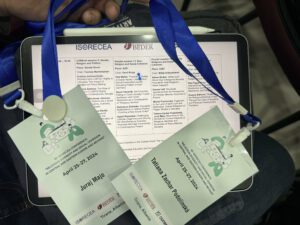
Tatiana Zachar Podolinská and Tomáš Hrustič spoke at an international conference in Sibiu focused on the role of religion in the social inclusion of Roma. T. Zachar Podolinská delivered a keynote lecture titled Possibilities of Social Inclusion of Roma via Religious Path: Lessons from the Field. T. Hrustič presented on the topic Roma Converts to Jehovah’s Witnesses in Slovakia.
Photo: T. Zachar Podolinská
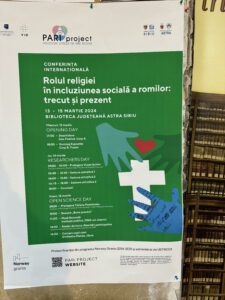
Jana Belišová published a study in the journal Religions as part of the RELIROMA project. The publication is available in Open Access format.
Belišová, J. (2024). Sounds, Emotions, and the Body in Pentecostal Romani Communities in Slovakia. Religions, 15(5), 532. https://doi.org/10.3390/rel15050532
On April 12, 2024, a professional workshop titled Bridges Out of Poverty took place at the Old Lyceum in Bratislava. The workshop focused on how churches and volunteers could work effectively in marginalized Roma communities. Tatiana Zachar Podolinská, along with Anna Polcková (ECAV, Bratislava), spoke at the event.
- The professional materials for the workshop are available HERE.
Photo: Workshop participants (Tatiana Zachar Podolinská)
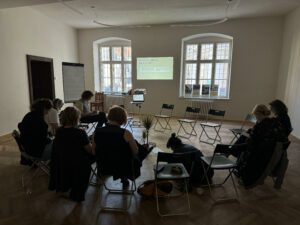
At the beginning of 2024, an interdisciplinary monograph on various aspects of Slovak religiosity, church history, and religion in 20th-century Slovakia Handbuch der Religions- und Kirchengeschichte der Slowakei im 20. Jahrhundert was published by Vandenhoeck & Ruprecht. Among the 33 authors, the book also includes two chapters authored by T. Zachar Podolinská, T. Hrustič, and J. Majo.
- Zachar Podolinská, Tatiana – Majo, Juraj. Religiosität und Kirche in der Slowakei im 20. und 21. Jahrhundert. In Handbuch der Religions- und Kirchengeschichte der Slowakei im 20. Jahrhundert. 1. Auflage. – Göttingen : Vandenhoeck & Ruprecht, 2024, p. 113-146.
Zachar Podolinská, Tatiana – Hrustič, Tomáš. Religion und Kirchen bei den slowakischen Roma an der Wende zum 21. Jahrhundert. In Handbuch der Religions- und Kirchengeschichte der Slowakei im 20. Jahrhundert. 1. Auflage. – Göttingen : Vandenhoeck & Ruprecht, 2024, p. 775-790.
Picture 1: Book cover
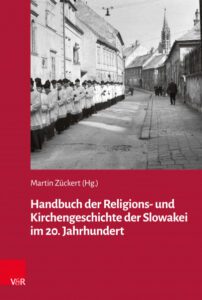
The Institute of Ethnology and Social Anthropology Slovak Academy of Sciences (IESA SAS) public research organization and the Vigdís International Centre (VIC) for Multilingualism and Intercultural Understanding as public research university have signed the Framework Agreement on Cooperation to promote the development of science and research, the application of new scientific knowledge in practice, the presentation, popularization and dissemination of scientific knowledge as well as for the benefit of the development of domestic and international scientific cooperation and communication to mutually coordinated approaches in ensuring the common interests in scientific research, organizational, legislative, editorial, presentation-promotional and educational areas, as well as in other spheres of common intentions.
The Vigdís International Centre for Multilingualism and Intercultural Understanding (Vigdís Finnbogadóttir Institute) operates under the auspices of UNESCO, the United Nations Educational, Scientific and Cultural Organisation, and is affiliated with the Vigdís Finnbogadóttir Institute for Foreign Languages at the University of Iceland. For more information see: https://vigdiscentre.hi.is/en.
The Center’s Important agenda is promoting Romani studies through the special program “Roma in the Centre“. This initiative unites several Romani Studies-related projects under the auspices of the Vigdís Finnbogadóttir Institute of Foreign Languages. The initiative is the expression of a long-term commitment to research, present, and popularise — in Iceland, in Nordic countries, in Europe, and globally — the literature and culture of the Roma/Gypsies.
For more information see: https://vigdiscentre.hi.is/en/research/roma-centre
The Framework Agreement on Cooperation is an output of the project APVV-22-0389 RELIROMA.
The text of the Agreement is available here:
The introductory meeting of the project APVV-22-0389 RELIROMA is organized by the Institute of Ethnology and Social Anthropology, SAV, and will take place on November 10 – 11, 2023, at the Hotel under the Linden Tree in Modra-Harmónia.
Please, find the program HERE and also the presentations by T. Z. Podolinská and J. Majo.
Pictures from the meeting
Picture 1:
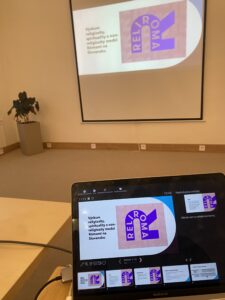
Picture 2:
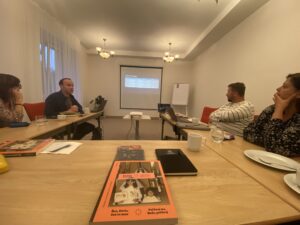
Picture 3:
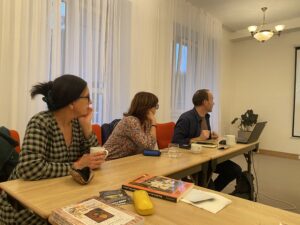
The Institute of Ethnology and Social Anthropology of the Slovak Academy of Sciences organizes the 8th annual Academy of Romani Studies – ARS 2023 that will take place November 10, 2023, in Modra-Harmónia.
The current edition provides an opportunity for the young generation of Slovak and Czech PhD students to present their work to an expert audience and receive targeted feedback from internationally established experts in the field of Roma studies.
The event is organized in collaboration with the Seminar of Romani Studies at the Faculty of Philosophy of Charles University in Prague and is an outcome of the APVV-22-0389 project RELIROMA.
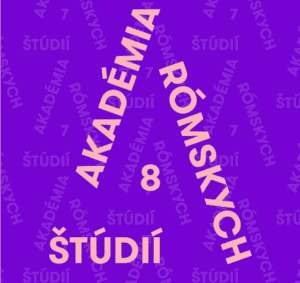
Pictures from the meeting:
Picture 1:
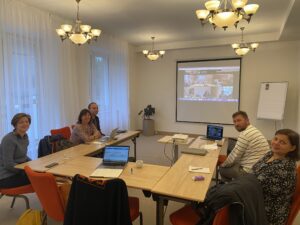
Picture 2:
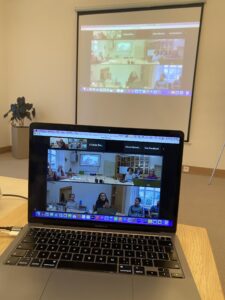
The Principal Investigator of the APVV-22-0389 RELIROMA project, Tatiana Zachar Podolinská, participated in the organization of the world congress of the international Gypsy Lore Society (GLS) in Brazil (November 2-6, 2023, in Saõ Paolo). As part of the conference, she led a thematic panel dedicated to religiosity, spirituality, and non-religiosity among Roma worldwide. Within the panel she made an active contribution in which she presented the intentions and methodology of the RELIROMA project, and the results of research devoted to private apparitions with Christian and spiritual motifs (Virgin Mary, Jesus Christ, Angels, Demons, “magic eyes”, etc.) among the Roma in Slovakia and discursive analysis of their media image in Slovak mass media (print and social media and TV).
The program of the conference is HERE.
The Book of abstracts is HERE.
Photo 1:
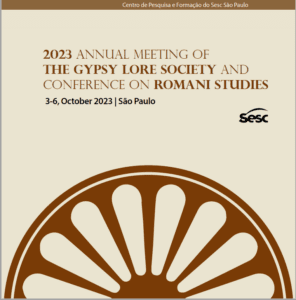
Photo 2: Congress Gypsy Lore Society (Elena Marushiakova)

Photo 3: Religious panel 1 (Tatiana Zachar Podolinská)
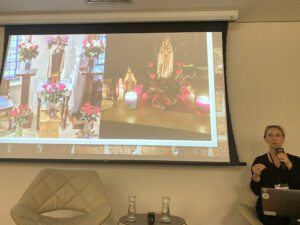
Photo 4: Religious panel 2 (Tatiana Zachar Podolinská)

Photo 5: Religious panel 3 (Tatiana Zachar Podolinská)
